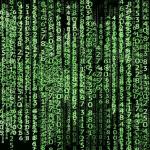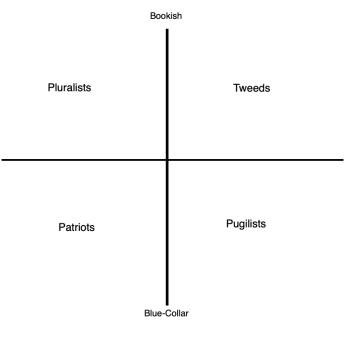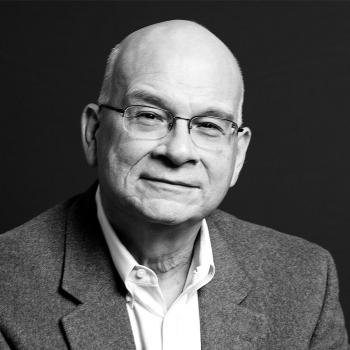 “Deconstruction” is back in the Christian news orbit. Former megachurch pastor and bestselling author Josh Harris—responsible for penning the rather notorious volume I Kissed Dating Goodbye—recently announced that he was offering a course on deconstruction (that is, a pattern of transition away from standard evangelical theology) for the substantial sum of $275, with a discount for anyone personally impacted by Harris’s own teaching. Under withering criticism from all sides, he yanked the course soon after, but it’s undeniable that there’s a distinct market for what Harris is selling, especially online. Just search Twitter for the “#exvangelical” or “#exvie” hashtags, and you’ll find an enormous constellation of major and minor personalities in various stages of deconstruction.
“Deconstruction” is back in the Christian news orbit. Former megachurch pastor and bestselling author Josh Harris—responsible for penning the rather notorious volume I Kissed Dating Goodbye—recently announced that he was offering a course on deconstruction (that is, a pattern of transition away from standard evangelical theology) for the substantial sum of $275, with a discount for anyone personally impacted by Harris’s own teaching. Under withering criticism from all sides, he yanked the course soon after, but it’s undeniable that there’s a distinct market for what Harris is selling, especially online. Just search Twitter for the “#exvangelical” or “#exvie” hashtags, and you’ll find an enormous constellation of major and minor personalities in various stages of deconstruction.
I tend to write a lot about theology in relation to just about everything else, which entails that I take theology seriously—as a set of truth-claims about the structure of reality rather than as mere ritual or elegant language. And because I don’t spend a lot of time arguing about first principles, I’m keenly aware that someone coming to this blog (or any of my other writings) for the first time might come away thinking that I’ve spent my life safely ensconced in an epistemic bubble. What if, you might wonder, this guy simply hasn’t “deconstructed” anything yet? What about all the arguments circulating on #exvangelical Twitter? Don’t those count for anything at all?
I’ll put my cards on the table up front: the reason I don’t take a lot of “deconstruction” content particularly seriously is that, in my experience, this process is far less about finding truth qua truth than about taking a set of defined steps toward the adoption of a specific new worldview. Maybe this isn’t the case for absolutely everyone, but it’s a conclusion that emerges out of my own experiences working through my beliefs, as well as watching a number of others go through the same process.
Towards the end of my college years, I went through a process of spiritual upheaval and reconsideration that probably looked a lot like what now goes by the name “deconstruction.” For me, though, the catalyst wasn’t higher criticism of the Bible—I was pretty familiar with this theme already, and I had never put all my philosophical eggs in a biblical-presuppositionalist basket. For me, the impetus to reconsideration was reading Molly Worthen’s Apostles of Reason: The Crisis of Authority in American Evangelicalism, which presented the (at the time) alarming idea that many of the practices and ideas common to contemporary evangelicalism were the products of contingent historical processes, rather than inherited more-or-less directly from the primitive Church. And around this time, I read most of the canon of prominent “deconstruction” literature: I went through my Peter Enns, my Rob Bell, my Rachel Held Evans, my John Shelby Spong (though I found this last ridiculous), and so on.
[For anyone curious, I actually don’t think these authors are all bad. Enns seems to spend a lot of his time simply repristinating mainline biblical criticism for post-evangelical audiences, but Inspiration and Incarnation was a good read, and his podcast with Jared Byas hosts some great thinkers. And Evans’s Searching for Sunday is amazingly poignant and haunting.]At about the same point that I read Apostles of Reason, I read Orthodox theologian David Bentley Hart’s The Experience of God: Being, Consciousness, Bliss—a bravado defense of classical theism (and implicitly, traditional Christian metaphysics). In many ways, this book upended the mental “picture” I had of theology, introducing me to themes I’d simply never grasped properly despite years of Christian education. In the space of a single afternoon’s reading at the Sweet Frog frozen yogurt shop, I learned that the idea of “causation” has not had a univocal meaning throughout philosophical history, that arcane and forgettable theological terms like “divine simplicity” and “impassibility” are both true and critically important, that the ideas of divine transcendence and immanence are vitally interrelated, and so much else. Hart’s book planted a seed of doubt that no criticisms of “the church” could ever really uproot: Maybe the problem is me. Maybe I don’t understand what it is that part of me wants to reject. And over the years that followed, a whole host of concepts—in particular “natural law”—steadily became far more intelligible to me than they’d ever been before.
Crucially, though, I went through all this before deconstruction really had much of a name, or a web of online communities devoted to connecting people undergoing the same experience. What concerns me most about the contemporary deconstruction community is that, in my admittedly limited experience, it seems increasingly dependent on the assumption that certain “scripts,” or standard behavioral patterns, will hold true for most people involved. On these accounts, doing deconstruction right means proceeding through a very specific intellectual sequence, nicely illustrated by the “deconstruction guide” that was published by Josh Harris to accompany his course.
Harris breaks his guide down into three sections for three audiences: (1) those who want to make some fairly small-scale adjustments to their existing theology, (2) those questioning the general foundations of Christianity itself but not quite willing to pull the plug, and (3) those wanting to leave the faith altogether. Now, on its face, this structure is bizarre. Are all three of these options being put forth as equally true and valid? And who would actually benefit from framing the matter this way—on an epistemic level, can you really pick and choose “how far you go” when reevaluating fundamental questions of reality and morality?
In any case, the overt implication here is that deconstruction is a road that, properly understood, leads inexorably in one direction—out of traditional Christianity. The intellectual possibility that you may not really understand what it is that you’re rejecting is simply excluded from the outset. Like candidates ascending through Scientology’s “OT” stages, early-stage deconstructors might not find themselves ready for the harsher truths offered by the “higher levels” of Harris’s guide, but when they’re ready to face the truth, the materials will all be there to usher them into a brave new post-Christian future.
And what, perchance, does this future look like? If “exvangelical Twitter” is any indication, it mostly looks like a fairly boring repetition of progressive mantras. If zealously arguing for police abolition and Medicare for All is your thing, then hey, carry on—but it does seem rather surprising that in the majority of cases, “deconstruction” doesn’t seem to lead to the adoption of any more interesting religious or philosophical commitments. Where are the post-evangelical Sikhs or Theravada Buddhists or Middle Platonists? I don’t want to speak for everyone involved, but—in light of my own experience—I think it’s safe to say that what’s happening here is less a process of intellectual maturation than a substitution of one set of culture-derived norms (those of evangelicalism) for another (those of the blue-state internet).
Put another way, what’s happening here isn’t what Charles Taylor has described as the “Standard Story” of secularization—the increasing irreconcilability of Christian theological commitments with modern scientific findings. Controversies about evolution and intelligent design may be the initial impetus toward deconstruction, but there’s no strictly logical reason that the latter should follow from the former (especially once one gets their metaphysical theology properly squared away). Rather, deconstruction is probably more properly described as a transition from one set of background beliefs about the world to another set. And in light of that reality, the thoughtful deconstructor should be equally willing to interrogate the foundational claims of the new subculture they join: to name just one example, if appeals to personal religious experience are per se intellectually invalid, why are routine appeals to “lived experience” unchallengeable? In the exvangelical world, the hermeneutic of suspicion only operates one way—toward the tradition from which deconstructors originally emerged.
In the same vein, while there’s no way to establish the point statistically, in my experience the exvangelical internet is uncommonly keen to defer to whatever is taken as conventional cultural wisdom, “science,” or “expert opinion.” But for every book like Apostles of Reason that problematizes the history of Christian thought, there’s a philosophy-of-science volume like Thomas Kuhn’s The Structure of Scientific Revolutions or Bruno Latour’s We Have Never Been Modern (or, heck, Michel Foucault’s History of Madness) that’s keen to point out the profoundly non-“scientific” influences that bear on the generation of purportedly scientific knowledge. One does not escape the challenges of history and authority by moving between traditions of thought; rather, one simply discovers new difficulties.
All of this, taken together, is basically why I find the standard “exvangelical” script so comparatively uninteresting, as well as intellectually unconvincing. At the very least, those reconsidering their foundational beliefs should be invited to explore the possibility that they themselves are not reliable exponents of the tradition they claim to represent, rather than being immediately invited to undertake a “journey” that tends to look pretty much the same for everyone. Ruling out that possibility a priori is the opposite of intellectual integrity. (Notably, this is saying nothing of the fact that those who derive their identity from “deconstruction” seem, at least anecdotally, to have an unusually high number of broken relationships and questionable financial practices—so one might reasonably question whether happiness and wholeness really lie at the end of the exvangelical path.)
[An important caveat to all this: I’m very sorry that some who end up deconstructing have had miserable or downright abusive experiences in the church, and I certainly don’t want anything I write here to minimize that pain. There have been times in my life when I just needed some physical and mental space from organized Christian institutions, and so I really do understand the desire to simply step back for a bit. For what it’s worth, the principal targets of this critique are those inclined to make a “brand” out of their personal spiritual odyssey (which is never as unique as they seem to think it is), or those who make “deconstruction from evangelicalism” a central pillar of their adult identity.]In the context of deconstruction, Tim Keller once quipped “doubt your doubts”—a phrase that, when I first heard it, sort of made me roll my eyes. Isn’t that what someone would say who’s trying to shore up their fiefdom against critiques? But properly understood, Keller isn’t calling for a kind of fideistic retreat into blind trust. Rather, he’s inviting the thoughtful listener to ask an important question: on the basis of what assumptions about truth and reality am I finding my existing religious tradition inadequate? Whether those assumptions can be properly grounded is, then, a critical question. And this is the question that the exvangelical community, in my judgment, all too often dodges—instead preferring to appeal to “history” or “science” without interrogating the underpinnings involved. The collapse of one plausibility structure is always the genesis of a different one; a “deconstruction” is always a conversion.















